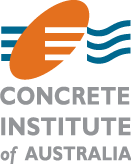Event Summary
In Person and Online
Ultra High-Performance Concrete (UHPC) is an advanced type of concrete known for its exceptional strength, durability, and unique mechanical properties compared to conventional concrete mixes. UHPC allows for the construction of slender, lightweight, and durable structures.
Our expert speakers will present case studies and research findings on significant advantages in terms of strength, durability, and performance showing where UHPC has been used in prestressed concrete girder simple span bridges, precast concrete deck panels, and field cast connections between prefabricated bridge components in Asia, Europe, and North America.
Attendees will have the opportunity to engage in discussions about how UHPC can be used in Australia to extend the lifespan of concrete structures.
Proudly sponsored by:
.png)

Presenters
Dr (Jackie) Voo Yen Lei (Dura Technology)
Voo Yen Lei, is the CEO and founder of Dura Technology S/B. He completed his PhD. in Civil Engineering in year 2004 from the University of New South Wales (Australia). His interest and knowledge in ultra-high performance fiber reinforced concrete (UHPFRC) and his passion to create a more sustainable and environment friendly development. To-date Dura Company has supplied or constructed over 300 UHPFRC bridges in Malaysia, China and India. Dr Voo is also an Adjunct Professor with the Swinburne University of Technology (Melbourne and Sarawak) and Monash University Malaysia. He also the three times winner in the 2016, 2022 and 2024 PCI Design Award: Best International Transportation Structure from the USA Precast/Prestressed Concrete Institution.
Sustainability of UHPC Bridges
Ultra-high-performance concrete (UHPC) is a sustainable construction material recognized for its exceptional durability and ability in providing long spans, especially in segmental precast construction. In Malaysia, the use of long-span UHPC girders has rapidly increased in bridge construction and is particularly beneficial for urban area where the need for piers within the highly congested and obstructed area can be eliminated; or for river crossings in that the need for piers within the waterway can be eliminated. This seminar gives three examples on the environmental impact calculation (EIC) of (i) 60m standard span UHPC composite bridge versus conventional high strength concrete composite bridge; (ii) the 105m navigation span UHPC composite bridge versus the steel I-beam composite bridge and (iii) the 100m long UHPC box girder versus the steel I-beam composite bridge. Precast-prestressed UHPC girders were used with a conventional normal strength concrete deck. Sustainability assessment comparing it with a conventional steel composite design reveals that the UHPC bridge exhibits significantly better sustainability metrics, with less than 60% of the embodied carbon compared to an alternative steel design.
Dr Scott Taylor, Director Engineering & Innovation (Major Road Projects Victoria (MRPV)
Scott currently leads the Engineering Team at Major Road Projects Victoria (MRPV), as the Director Engineering & Innovation. His role oversees all engineering and technical aspects of the projects within the MRPV portfolio, with the aim of managing and mitigating technical risks. His role incorporates engendering an innovative culture across MRPV and its projects. Scott has worked in both government and private sectors with a focus on bridge design and design management. He also has a strong research background, having obtained a PhD in 2004 in structural dynamics and computational methodologies.
Development of a Technical Specification and Design Standard for UHPC
There is a process underway to develop technical specifications and design standards to guide designers, contractors and suppliers on technical requirements of UHPC to better enable industry to take advantage of the many opportunities UHPC will offer.
In this session Scott will outline the intended plan to develop
(i) a technical specification to define materials properties and constructability aspects of UHPC, and
(ii) (ii) a design standard that will provide design guidance on the use of UHPC. The development of the technical specification is well underway by the Department of Transport and Planning (DTP) in Victoria, and the content and industry feedback received will be presented in this session.
Professor Stephen Foster (Dean of Engineering, UNSW Sydney)
Stephen Foster has over 40 years’ experience as a structural engineer and as a teacher in this field. Stephen has over 370 publications in the field of structural concrete and concrete materials, with textbooks on Reinforced Concrete and Prestressed Concrete. His main research interests are in the fields of bringing new materials technologies to the design concrete structures, including fibre and ultra-high-performance concrete, low carbon construction materials such as Geopolymer and alkaline activated concretes and high strength reinforcing steels. He chaired committee that developed the first national Standards Australia Technical Specification “Design of geopolymer and alkali activated binder concrete structures” (SA TS 199).
He is a Fellow of Engineers Australia, Fellow of fib, Honorary Member of the Concrete Institute of Australia (CIA), a member of Australian Standards Committee BD2, Chairman of sub-committee BD2/1 “Strength and Analysis”BD2/6 “Fibre Reinforced Concrete”, BD2/9 “Geopolymer Concrete”, Member of Australia Standards Committee BD90.5 “Bridge Design – Concrete” and chaired the BD90.5 working group on “Fibre Reinforced Concrete” and he is a Member of Canadian Standards Association Task Force on “Canadian Highway Bridge Design Code Ultra High Performance Concrete”. He is the elected President of the International Federation for Structural Concrete (fib) (2023-24) and member of the fib Presidium.
Visit again for details on Scott’s presentation.
Registration
$88.00 CIA Professional, Company & Academic Members. In person or online.
$44.00 CIA Retired, Life and Honorary Members. In person or online.
$22.00 Student Members. In person or online.
$110.00 Non Member. In person or online.
CIA Victoria Annual Sponsors
The Concrete Institute of Australia appreciates the ongoing support of our annual sponsors in Victoria

